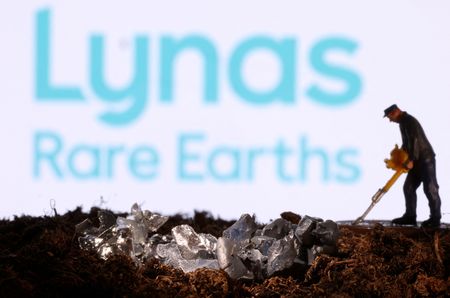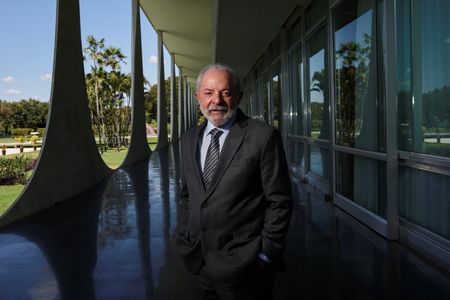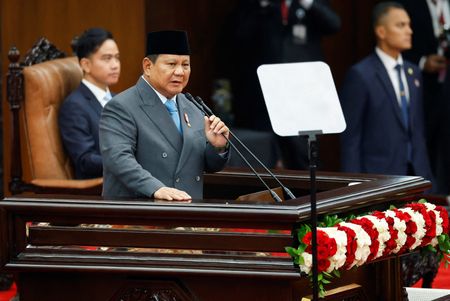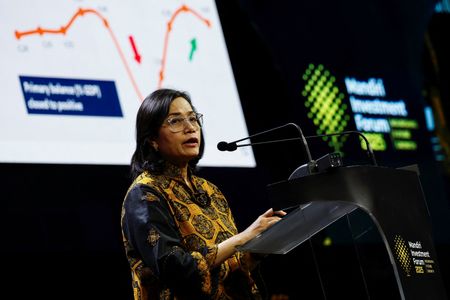By Rajasik Mukherjee
(Reuters) -Rare earths miner Lynas missed market forecasts for its second-quarter revenue and warned on Friday it expects tough market conditions to prevail in the coming quarter on subdued demand from China, sending its shares down more than 6%.
Lynas, the world’s largest producer of rare earths outside China, said it had been hurt by weak prices for neodymium and praseodymium (NdPr), products essential in magnets for a wide range of applications such as electric vehicles and defence.
“These market conditions are expected to continue into the March 2025 quarter due to continuing subdued inside China demand and the extended lunar new year holiday period,” Lynas said in its quarterly report.
China produces roughly 90% of refined rare earths and controls supply via strict quotas.
The company also faced challenges in processing new feedstocks which led to lower output than it had planned in December. Total rare-earth oxide output for the second quarter fell 4% from the previous quarter.
Lynas reported revenue of A$141.2 million ($87.64 million) for the December quarter, up nearly 4% from a year earlier but well short of a Visible Alpha consensus estimate of A$154 million.
Shares of the miner fell as much as 6.6% to A$6.62, on track for its worst trading day since March 2023.
Prices of rare earth elements have been under pressure due to excessive supply from China with sluggish demand from green energy companies and electric automakers further adding onto its woes.
“Until we see material economic recovery in China, less-global reliance on China’s rare earths producers, and stabilised growth in demand for EVs around the world … rare earth prices are expected to remain subdued,” said Grady Wulff, market analyst at online trading platform Bell Direct.
Lynas said it reaped an average selling price of A$49.2 per kilogram for its product range during the quarter, compared with A$34.8 per kg last year, helped by favourable foreign exchange rates and a higher quality mix of products.
($1 = 1.6111 Australian dollars)
(Reporting by Rajasik Mukherjee & Aaditya Govind Rao in Bengaluru; Editing by Alan Barona and Sonali Paul)











